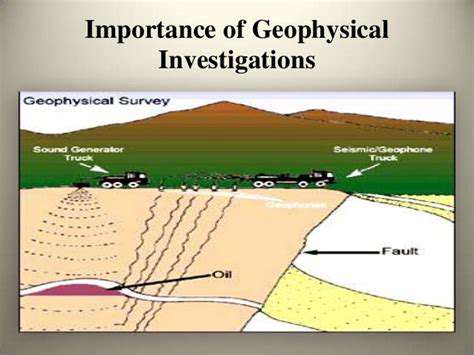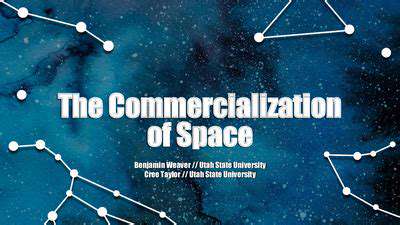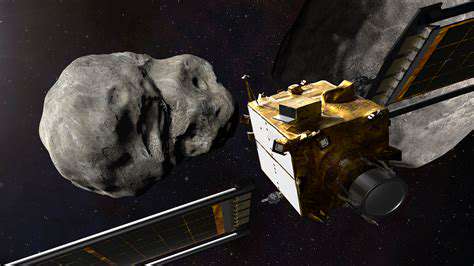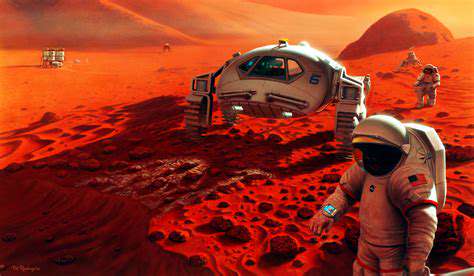Investigating the Effects of Microgravity on Cellular Processes
Understanding Microgravity's Impact
Microgravity, a condition of weightlessness experienced in space, significantly alters the environment for biological processes. This absence of a gravitational field disrupts the normal distribution of fluids and cells within the body, leading to a cascade of physiological changes. Understanding these changes is crucial for developing strategies to mitigate the health risks associated with long-duration space missions and for further research into fundamental biological processes.
Alterations in Fluid Dynamics
One of the most immediate and noticeable effects of microgravity is the redistribution of bodily fluids. Without the force of gravity pulling fluids downwards, they tend to accumulate in the upper body. This altered fluid distribution can impact organ function, potentially affecting the cardiovascular system, and potentially disrupting the delicate balance required for optimal cellular function. These fluid shifts also affect the growth and development of tissues and organs.
Further, the absence of gravity can cause changes in the composition and viscosity of bodily fluids, potentially affecting their transport and exchange within the body. The exact mechanisms by which these changes occur are still under investigation and are a critical area of research.
Impact on Cellular Growth and Division
Cellular processes like growth and division are highly sensitive to external stimuli, including gravity. In microgravity, these processes are often disrupted. Changes in nutrient delivery, mechanical cues, and signaling pathways can all contribute to altered cellular behavior. This can have implications for tissue development, regeneration, and overall organismal health.
Bone Density and Muscle Atrophy
The absence of weight-bearing forces in microgravity leads to a significant loss of bone density. This occurs because the body's natural mechanisms for maintaining bone mass are no longer stimulated by the normal stresses of gravity. Similar mechanisms affect muscle mass and strength, leading to muscle atrophy over time. These effects are particularly concerning for long-duration space missions, as they can lead to debilitating health issues for astronauts upon their return to Earth.
Potential Implications for Space Exploration
The effects of microgravity on cellular processes pose significant challenges for long-duration space missions. Understanding these effects is crucial for developing countermeasures to mitigate the associated health risks. This includes optimizing nutrition, exercise regimens, and other countermeasures to help prevent bone loss and muscle atrophy during prolonged stays in space. Further research is needed to fully understand the complex interactions between microgravity and cellular processes, ultimately paving the way for safer and more sustainable human space exploration.
Unveiling the Impact on the Immune System and Human Development

Understanding the Immune System's Response
The human immune system is a complex network of cells, tissues, and organs that work together to defend the body against harmful invaders, such as bacteria, viruses, and fungi. This intricate system is constantly monitoring the body for any signs of infection or damage, and it activates a series of responses to eliminate the threat. Understanding how the immune system functions is crucial for comprehending its impact on various aspects of health and disease. A well-functioning immune system is essential for protecting us from illness, but imbalances can lead to a variety of problems.
One key aspect of the immune response is the ability to distinguish between self and non-self. This crucial distinction allows the immune system to target foreign invaders without harming the body's own cells. Dysfunction in this recognition process can lead to autoimmune diseases, where the immune system mistakenly attacks healthy tissues. This intricate process is vital for maintaining overall health and well-being.
Factors Influencing Immune System Function
Several factors can influence the efficiency and effectiveness of the immune system. Diet plays a significant role, with a balanced intake of nutrients being essential for supporting immune cell development and function. Adequate sleep is crucial for the immune system's ability to repair and regenerate, and chronic sleep deprivation can compromise its defenses. Stress, both physical and emotional, can also significantly impact the immune response. Stress hormones can suppress immune function, making individuals more susceptible to infections.
Genetic predisposition also plays a part in immune system function. Inherited variations in genes can influence the effectiveness of immune responses, potentially making some individuals more vulnerable to certain infections or autoimmune disorders. Environmental factors, such as exposure to pollutants or toxins, can also impact the immune system's ability to fight off infections and maintain overall health.
Consequences of Immune System Imbalance
Disruptions in immune function can have far-reaching consequences for human health. Immune deficiencies can leave individuals susceptible to a wide range of infections, making them vulnerable to opportunistic pathogens. Conversely, overactive immune responses can lead to autoimmune disorders, where the immune system mistakenly attacks healthy tissues. These disorders can range from mild to severe, impacting various organs and systems in the body. Maintaining a balanced and robust immune system is essential for preventing and managing these conditions.
Chronic inflammation, often a result of an imbalanced immune response, is linked to numerous health problems, including cardiovascular disease, type 2 diabetes, and certain types of cancer. Understanding and addressing the factors that contribute to immune system imbalances is vital for improving overall health and well-being. This knowledge is also essential for developing effective strategies for preventing and treating immune-related diseases.












